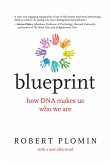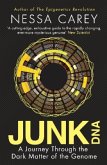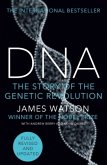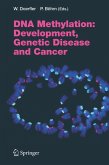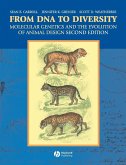Crick and Watson's discovery of the structure of DNA fifty years ago marked one of the great turning points in the history of science. Biology, immunology, medicine and genetics have all been radically transformed in the succeeding half-century, and the double helix has become an icon of our times. This fascinating exploration of a scientific phenomenon provides a lucid and engaging account of the background and context for the discovery, its significance and afterlife, while a series of essays by leading scientists, historians and commentators offers uniquely individual perspectives on DNA and its impact on modern science and society.
Hinweis: Dieser Artikel kann nur an eine deutsche Lieferadresse ausgeliefert werden.
Hinweis: Dieser Artikel kann nur an eine deutsche Lieferadresse ausgeliefert werden.
'The editors have crafted a concise, reader-friendly and handsomely illustrated history of the discovery that revolutionized biology...' - Publishers Weekly
'...a superbly illustrated, carefully researched and well-written DNA jubilee book...For me, and probably many other readers who are interested in the history of science, this book provides new insights into understanding what really happened in the first few months of 1953, and who we should remember as providing the decisive data required to elucidate the structure of DNA...50 Years of DNA should find its place on the desks of all those who are interested in history, the current state of DNA research and its future.' - Andrzej Stasiak, University of Lausanne, Switzerland, European Molecular Biology Organization, EMBO reports
'...a superbly illustrated, carefully researched and well-written DNA jubilee book...For me, and probably many other readers who are interested in the history of science, this book provides new insights into understanding what really happened in the first few months of 1953, and who we should remember as providing the decisive data required to elucidate the structure of DNA...50 Years of DNA should find its place on the desks of all those who are interested in history, the current state of DNA research and its future.' - Andrzej Stasiak, University of Lausanne, Switzerland, European Molecular Biology Organization, EMBO reports


